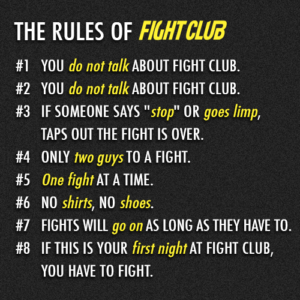I know you hate clickbait headlines, but they work, plus I know you want to know, so why give it away in the title! I mean I don’t get paid for my dashing looks and witty charm! Thank goodness!
LinkedIn launched its 2020 Future of Recruiting survey results today and it’s one of my favorite content pieces to comment on. Click through the link to download it for yourself, it’s packed with interesting data around talent acquisition and recruiting!
The #1 Skill for Recruiters in 2020 is…Adaptability!
Did you guess that? I didn’t. I think I could have probably could have had 50 guesses on not got that one. Here are the others:
Fastest growing skills for recruiters in 2020:
● Personal Development +44%
● Diversity & Inclusion +42%
● Talent Pipelining +37%
● Decision-Making +34%
● HR Strategy +30%
Okay, I can see personal development being high on the list, since 2020 has brought a lot of quality time working in remote settings and high unemployment numbers for recruiting pros, I think most people have been thinking about their personal and professional development.
I actually would have guessed D&I would have been #1. 2020 will be remembered for a few things – Covid, Social Justice, and the U.S. finally getting a sane person in the White House. So, from a talent acquisition perspective, I would have guessed diversity and inclusion recruiting to be the top priority.
HR Strategy actually makes zero sense to me! So, you’re in talent acquisition and your most needed skill is HR Strategy? Quite frankly, it makes you question the results overall. How could that be? Talent Pipelining? Yep! HR Strategy? Nope! But, it’s 2020, weird times.
Another big eye-opening stat from the report:
70% say Virtual Recruiting will become the new standard!
Okay, this one will take some explaining and background. First, what do you mean by “virtual recruiting”? So, for this data, that basically means, the process we have for recruiting can be done virtually. Sourcing, video interviewing, online assessments, etc., can all be done virtually, so I guess, yes, in that case, “virtual recruiting” is the new standard.
But, honestly, most of that stuff was already fairly standard.
I think the bigger aspect is Recruiters believing they’ll continue to be virtual/remote after Covid. I think Covid has shown organizations that in a pinch, yep, recruiting can be done virtually. But, every organization will have to truly decide is it better or the same as before, or possibly worse?
I’ve spoken to a number of F500 executives who aren’t super keen on remote recruiting because the relationships with hiring managers are worse, synergies amongst the TA team aren’t as robust, and brainstorming around testing and how to improve seem weaker in remote settings. Some of that can be improved, but it still comes down to leader perception.
We’ve been automating recruiting since the first Caveman needed a new assistant to track dinosaur migration patterns, so the fact that we’ll continue to automate and be able to recruit from anywhere in a mostly Saas environment should not be surprising to anyone.
Go download the new report. Some really good stuff around TA budgets and everyone’s favorite new topic, Internal Mobility, as well.

